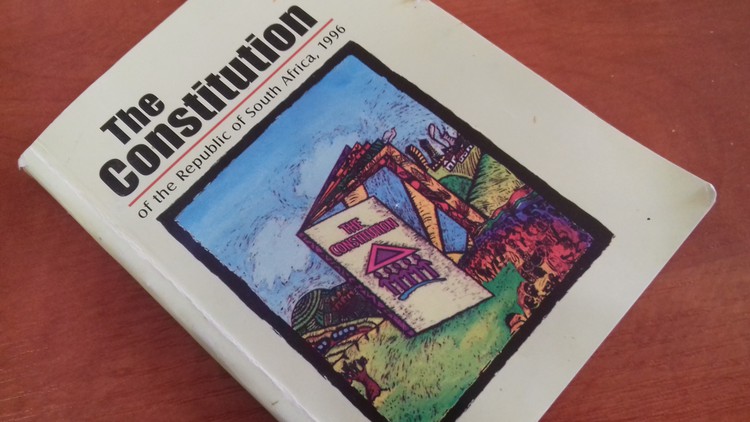No birth certificate, no school
How undocumented children are unlawfully denied access to education
Aphiwe*, a nine-year-old learner, could not find a place in a school. Her mother, Sinothando* is a 30-year-old South African woman born in a remote Eastern Cape village. Both Sinothando’s parents died when she was a child. Her only other known relative has also died. She has never been able to have her own birth registered.
As a result, Sinothando was unable to register Aphiwe’s birth with the Department of Home Affairs (DHA). She also did not have a clinic card for her daughter.
The DHA is able to register a birth upon proof of the mother’s identification and the clinic card or certificate of birth from the hospital where the birth took place.
Because Sinothando had no proof of identification, she was not able to register her daughter for school.
To get admitted to a school, provinces require learners to be in possession of an official abridged birth certificate or identity document. When a learner does not have either of these documents the principal of the school he or she is applying to must ask the parent(s) to go to the DHA to apply for the document. The principal must also inform them that their application for admission to the school will only be considered once the school has been given written proof from the DHA that the parent(s) has made an application for an abridged birth certificate or ID for the learner. The application for admission is then provisionally accepted for three months on condition that the learner obtains a birth certificate or ID (or proof of application of one of these) from the DHA.
Assisted by a local NGO, Sinothando made repeated attempts at the DHA, over an 18-month period, to register herself and Aphiwe, using Aphiwe’s certificate of birth obtained from the nearby day hospital.
Sinothando first approached the DHA’s Nyanga office. It was then that she discovered her mother’s name was not on the DHA’s internal systems, and there were no records of Sinothando’s fingerprints. This meant that she had never been registered at the DHA. Months later, the supervisor at Nyanga DHA said there was no trace of her and they could not assist her. Sinothando was given a form and told to go to the Khayelitsha DHA. At Khayelitsha, Sinothando was told that to be registered she would need a social worker to write a letter to the DHA explaining that Sinothando had no proof of identity.
The NGO assisting Sinothando ensured the social worker’s letter was sent. On following up at Khayelitsha DHA, the NGO was informed that Sinothando would have to bring a relative to prove her birth. With no ties to her village of birth, no known living relatives (aside from Aphiwe), and a rare clan name, the search for a relative was long and difficult. Ultimately, it was unsuccessful.
Hoping a different office might provide some way forward, in September 2016 Sinothando then sought the assistance of Wynberg DHA. Again, her efforts proved fruitless. Wynberg DHA told Sinothando that she only needed to produce a record from a school she attended in her village. Sinothando had only completed grade three, and is unable to recall the name of her school or any teacher who may remember her.
All this time, Aphiwe remained out of school. By age 9, she had missed two academic years.
The Western Cape Education Department (WCED) had been made aware of Sinothando’s struggle. Yet it failed to intervene or temporarily place Aphiwe. The NGO and Sinothando visited the WCED district office in their area on numerous occasions, to no avail.
Repeatedly they were told that the WCED was unable to register her on the internal learner database until she had a birth certificate number, or proof from the DHA of an application for registration. Until then, Sinothando was told, there was nothing the WCED could do. Sinothando was sent to more than five departmental officials for assistance, and still Aphiwe could not access a school.
What the Constitution says
The South African Constitution guarantees all learners the right to a basic education. The South African Schools Act (SASA) seeks to gives effect to this right. Section 29 of the Constitution grants the right to all persons in the country. There is no qualification to this right: it also applies to unregistered learners without birth certificates.
Section 3 of the SASA says that parents whose child is due to turn seven in a given school year must ensure that their child attends school. SASA also says the provincial education MEC must ensure that there are enough school places for every child in the province to attend school.
The Constitution (section 28) also says the best interest of the child is of paramount importance in every matter a child is concerned. Similarly, section 9 of the Children’s Act says that “in all matters concerning the care, protection and well-being of a child the standard that the child’s best interest is of paramount importance, must be applied.”
The Equal Education Law Centre had to intervene in this. At the 11th hour, the Western Cape MEC for Education averted a court hearing by agreeing to allow Aphiwe to attend school.
Sinothando and Aphiwe’s case is far from unique. There have been a number of cases of learners not being able to secure a school place because they lack documents that were supposed to be provided by the DHA. When children are denied access to education because they don’t have the right documents, the DHA and the provincial education departments are in breach of the law.
* Not their real names.
Support independent journalism
Donate using Payfast

© 2017 GroundUp. 
This article is licensed under a Creative Commons Attribution-NoDerivatives 4.0 International License.
You may republish this article, so long as you credit the authors and GroundUp, and do not change the text. Please include a link back to the original article.

